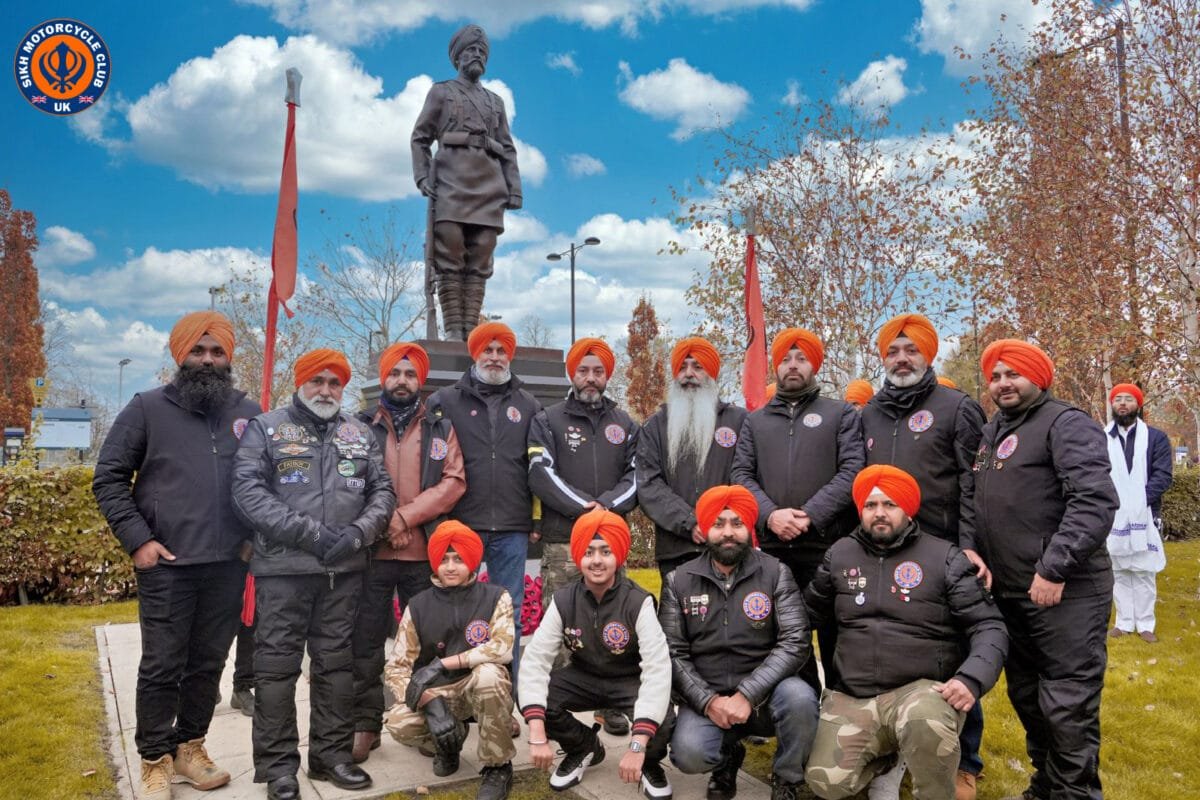Motorcycle helmets are widely acknowledged as life-saving equipment, significantly reducing the risk of head injuries in accidents. However, for Sikh men, wearing a helmet poses a conflict with their religious obligation to keep their heads covered only with a turban. This conflict led to a unique situation in the UK, where the government had to balance road safety with religious freedom. This tension sparked a historic grassroots movement, led by Sikh communities across the UK, to secure a legal exemption, balancing road safety with religious liberty. The resulting legislation, achieved through widespread Sikh advocacy, remains a landmark victory for religious freedom in modern Britain, with organisations like the Sikh Motorcycle Club UK continuing to uphold and advance this legacy.
The Turban: More Than Just a Head Covering
For many Sikhs, the turban is a sign of faith and respect. It is closely connected to kesh (hair), which is one of the five important symbols of the Sikh religion. Being told to remove the turban to wear a helmet felt deeply disrespectful to their beliefs. This led Sikh communities to come together and peacefully speak out, asking for the law to respect their religious identity.
The Helmet Law and Sikh Resistance
The UK’s push for mandatory helmet laws began in the 1930s after T.E. Lawrence’s fatal motorcycle accident, with the British Army mandating helmets by the 1940s. Despite failed attempts in 1956 and 1962, the Motor-Cycle Crash Helmets (Protective Headgear) Regulations were enacted in 1973 under the Road Traffic Act 1972, requiring helmets for all motorcyclists.
For Sikhs, compliance meant compromising their faith, prompting resistance across the UK. Gurdwaras in cities like Southall, Birmingham, Leicester, Manchester and Wolverhampton became organising hubs. Sikh communities staged peaceful protests, pursued legal challenges, and engaged in civil disobedience to highlight the injustice of the helmet mandate, framing it as a violation of religious freedom.
Parliamentary Advocacy and the Sikh Exemption
The Sikh campaign gained traction in Parliament, driven by community advocacy and supported by Sydney Bidwell, MP for Ealing Southall, a constituency with a significant Sikh population. Bidwell championed the Motor-Cycle Crash-Helmets (Religious Exemption) Bill, citing the precedent of Sikhs serving in the British Army while wearing turbans. In a January 1975 House of Commons debate, he stated:
“In battle time the Sikh has never been called upon to discard his turban in favour of the war hat or tin helmet worn by other soldiers under battle fire. It has been known for bullets to lodge in the hair of Sikhs.”
The debate balanced road safety with religious liberty. Sikh communities across the UK, through petitions, meetings with MPs, and coordination with gurdwaras, ensured their voices were heard.
On 15 November 1976, the Motor-Cycle Crash Helmets (Religious Exemption) Act 1976, granted Royal Assent by Queen Elizabeth II, exempted turban-wearing Sikhs from mandatory helmet laws, allowing them to ride motorcycles or mopeds without fear of fines or penalties. This exemption is now incorporated into the Road Traffic Act 1988.
Key Facts and Context
-
The Law: A special rule was made in 1976 (now part of the Road Traffic Act 1988). It says that Sikhs who wear turbans do not have to wear a helmet while riding a motorcycle in the UK.
-
Safety and Turbans: Helmets are proven to protect riders from serious head injuries. However, some people say that turbans also give a bit of protection. New ideas, like the “Tough Turban”, offer extra safety for those who want it.
-
What Other Countries Do: Similar rules allowing turban-wearing Sikhs to ride without helmets exist in parts of Canada (like British Columbia and Ontario) and in India. But some countries, like Australia, still require all riders to wear helmets, leading to ongoing discussions.
-
Sikh Rights in General: The helmet rule was just one part of a bigger effort by Sikhs to protect their religious rights—such as being allowed to wear turbans at work and carry the kirpan (a small ceremonial sword). These efforts helped shape fairer rules in the UK for people of all backgrounds.
The Enduring Legacy and the Sikh Motorcycle Club UK
The 1976 exemption reflects the resilience of Sikh communities across the UK, earned through protests, legal battles, and faith. It was a collective victory, not a parliamentary gift, driven by gurdwaras, activists, and ordinary Sikhs. Today, Sikh motorcyclists ride with turbans as a symbol of this triumph.
The Sikh Motorcycle Club UK, a member of the British Motorcyclists Federation, keeps this legacy alive Today, while setting the standard for today’s new Sikh riders and upcoming clubs. Through charity rides, such as the Distinguished Gentleman’s Ride, Ride to the Wall, and the Guru Nanak Charity Walk, as well as participation in Remembrance Day services, Farmer Protests, Vaisakhi celebrations, Turban Tying Camps, and numerous local events, the club promotes Sikh values and road safety. Collaborations with groups like the Midland Langar Seva Society and media appearances on BBC and ITV amplify their advocacy. The Sikh Motorcycle Club UK sets the standard for Sikh riders everywhere, promoting safe riding and cultural pride. Through guidance and support for new clubs and individual riders, the Sikh Motorcycle Club UK helps keep the community strong and united. In doing so, they honour the legacy of past struggles and ensure those hard-won rights continue to inspire generations to come.

